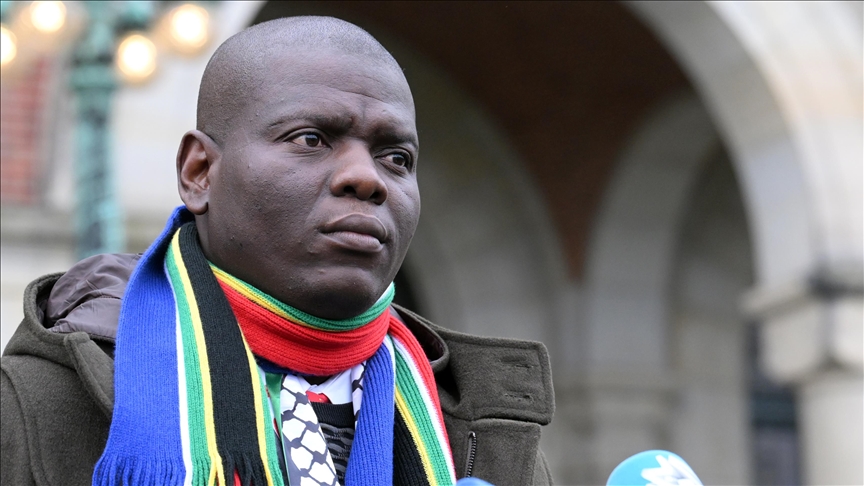Minister of Justice and Correctional Services of South Africa Ronald Lamola
South African ministers held talks Wednesday with a delegation of their visiting Mozambican counterparts on the violent post-election protests in Mozambique and its effect on both economies.
“We looked into the political situation in Mozambique and we have agreed that we will await for the outcome of the Constitutional Council,” South African Foreign Minister Ronald Lamola said at a news conference in Malelane -- 50 kilometers (30 miles) from the border with Mozambique.
Lamola said the outcomes of the Constitutional Council are important to South Africa on a bilateral level and for multi-lateral forums South Africa sits on, like the Southern African Development Community (SADC) and the African Union.
Mozambique’s Interior Minister Pascoal Ronda, who led the delegation to South Africa said President Filipe Nyusi has been working to resolve the election dispute.
Ronda said Nyusi encouraged dialogue among the candidates disputing the election but Mondlane did not turn show up.
The ministers exchanged views and agreed on measures to mitigate the disruption at their ports of entry, particularly at the Lebombo and Ressano Garcia crossings.
They also agreed that both countries will endeavor to protect and secure the infrastructure for trade facilitation and continued collaboration to ensure minimum disruption for regional integration, including associated cross-border value chains.
Mozambique has seen a wave of protests after its Election Commission declared Daniel Chapo, the 47-year-old candidate from the ruling Mozambique Liberation Front (Frelimo), the winner of the Oct. 9 election.
Chapo received 71% of the vote, defeating Venancio Mondlane of the Optimist Party for the Development of Mozambique (Podemos), who garnered 20%, according to the commission.
Mondlane rejected the results, alleging widespread vote-rigging and urged supporters to protest.
Last month, South Africa temporarily closed one of its busy border crossings with Mozambique due to the post-election violence in the neighbouring country.
Mozambique’s Constitutional Council, charged with resolving electoral disputes, will make its ruling Dec. 23.
At least 110 people have been killed since protests erupted Oct. 21, according to Plataforma Electoral Decide, a group that monitors elections in the southern African country. Anadolu Agency






